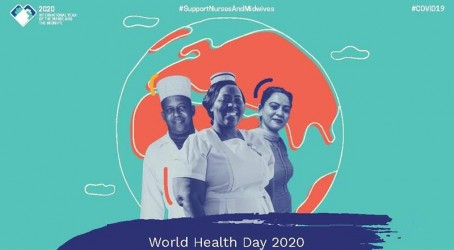Until now, countries which got infected with coronavirus had seen an increase in cases and also decrease, but this country with more than 183,470 population has seen 100 percent recovery.
Saint Lucia, the Eastern Caribbean island nation, on Wednesday reported that among the total 15 confirmed cases of COVID-19, all recovered after two cases in isolation tested negative for novel coronavirus. This makes it a country with 100 percent recovery from the disease.
Among all the 15 cases in the country there were individuals within the high risk category of elderly people with chronic health conditions. No one has died of the disease and all of them recovered without complications or any need for critical care, said a release from the country's Department of Health and Wellness. However, there are 44 persons in isolation and 25 in quarantine. The median age in Saint Lucia is 34.5 years.

The country has continued its partial shutdown. Lab testing is being carried out in local areas with support from the Caribbean Public Health Agency Laboratory. The country's new strategy includes increased testing from community respiratory clinics to help the assessment of coronavirus.
Mitigation measures such as school closure, closing of non-essential businesses and travel restrictions including partial national shutdown and 24 hour curfew, are all in place.

Aware of resurgence
They country is aware that even though there is an apparent decrease in COVID-19 cases flattening the curve, there could be a second wave. Hence, Saint Lucia is assessing the risks on evidence based approach to relax measures.
The release further noted, "The threat of COVID-19 still exists and will continue to be with us for a while. Some of the national protocols include: stay at home as much as possible, unless it is for food or medical purposes, avoid mass crowd events and social gatherings, practice social distancing and good personal hygiene."
The country calls for adapting new behavior patterns necessitated by the COVID-19 pandemic, while it advised people against risk of infection from those who are "pre-symptomatic".









